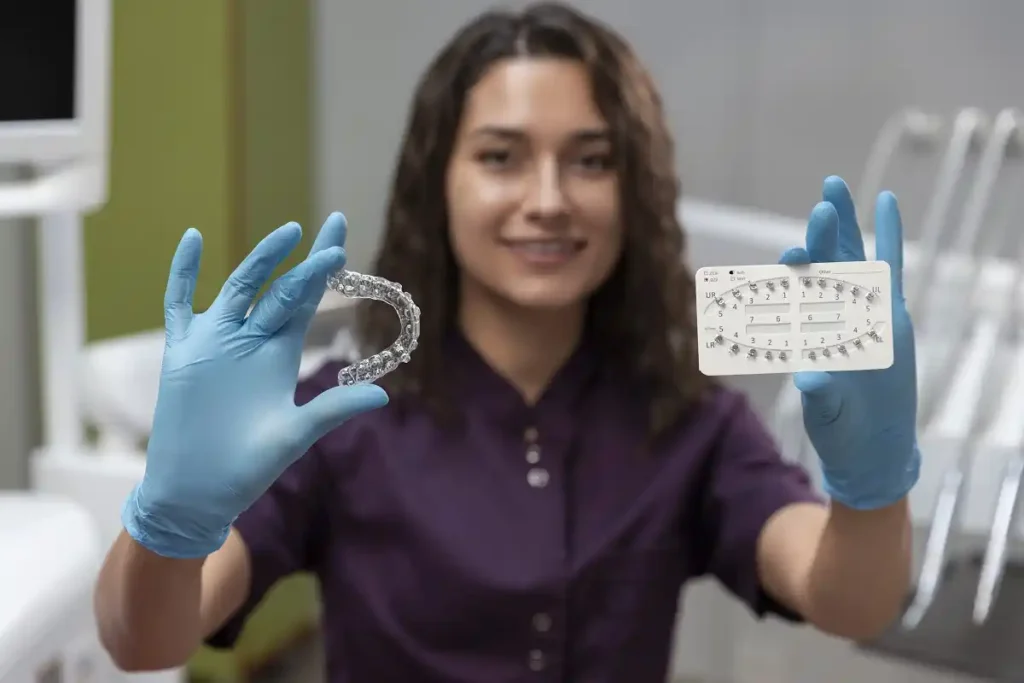Routine dental checkups are essential for preventing costly oral health issues and maintaining a healthy smile. Beyond cleanings, they include screenings to catch problems early, making treatment easier and more affordable. Regular visits play a key role in protecting your oral health and overall well-being.
A denture specialist in Sunshine Coast provides expert care for patients who need new dentures, denture repairs, or adjustments. These professionals design and create custom dentures that restore your smile, improve comfort, and enhance oral function. Using advanced technology and high-quality materials, Sunshine Coast denture specialists ensure a natural look and secure fit tailored to each patient’s needs. They also offer services such as relines, mouthguards, and implant-supported dentures. Whether you’ve lost a few teeth or require full dentures, visiting a qualified denture specialist ensures long-lasting results, better confidence, and improved overall dental health.
What Happens During a Dental Checkup?
Comprehensive Examination
Your dental checkup begins with a thorough examination of your mouth, teeth, and gums. Your dentist will visually inspect each tooth for signs of decay, cracks, or wear. They’ll also check your gums for inflammation, recession, or other signs of periodontal disease.
During this examination, your dentist may use specialized tools like dental mirrors and probes to get a closer look at hard-to-reach areas. They’ll also examine your tongue, throat, and the soft tissues in your mouth to check for abnormalities or signs of oral cancer.
Professional Cleaning
A dental hygienist typically performs the professional cleaning portion of your visit. This process involves removing plaque and tartar buildup that regular brushing and flossing can’t eliminate. The hygienist will use specialized instruments to carefully clean around your gum line and between your teeth.
After removing the buildup, your teeth will be polished with a gritty toothpaste-like substance that helps remove surface stains and leaves your teeth feeling smooth. This professional cleaning is crucial for maintaining healthy gums and preventing cavities.
Screening for Oral Diseases
Modern dental checkups include comprehensive screenings for various oral health conditions. Your dentist will look for early signs of gum disease, oral cancer, and other serious conditions that may not cause noticeable symptoms in their early stages.
These screenings may include examining lymph nodes in your neck, checking for unusual lumps or bumps, and evaluating the overall health of your oral tissues. Early detection through these routine screenings can be life-saving.
The Benefits of Regular Dental Visits
Early Detection of Dental Problems
One of the most significant advantages of routine dental checkups is the early detection of problems. Small cavities can be identified and treated before they require extensive procedures like root canals or crowns. Your dentist can spot issues that you might not notice until they become painful or more serious.
Early intervention typically means simpler, less invasive treatments that are more comfortable for you and less expensive in the long run. A small filling costs significantly less than a crown or extraction followed by tooth replacement.
Prevention of Gum Disease
Gum disease affects millions of adults and can lead to tooth loss if left untreated. Regular cleanings and examinations help prevent the buildup of bacteria that cause gingivitis and periodontitis. Your dental team can identify early signs of gum disease and provide treatment before it progresses.
Professional cleanings remove tartar that contributes to gum inflammation and infection. Your hygienist can also provide personalized advice on improving your home care routine to better prevent gum disease.
Maintaining Good Oral Hygiene
During your checkup, your dental team can evaluate your brushing and flossing technique and suggest improvements. They can recommend specific products that might work better for your unique needs, whether you have sensitive teeth, wear braces like those offered in Taylorsville, or have other special considerations.
This personalized guidance helps you maintain optimal oral health between visits and can prevent many common dental problems from developing.
Overall Health Benefits
Research has established strong connections between oral health and overall health. Poor oral health has been linked to heart disease, diabetes, stroke, and other serious medical conditions. Regular dental checkups help maintain good oral health, which can positively impact your general health.
Your mouth can also provide early warning signs of systemic diseases. Your dentist might be the first to notice symptoms that warrant medical evaluation, making routine dental visits an important component of your overall healthcare routine.
What to Expect During Your First Visit
If you’re visiting a new dentist or haven’t been to the dentist in a while, your first visit will likely be more comprehensive than routine checkups. The dental team will take a complete medical and dental history, including information about any medications you’re taking and health conditions you have.
You may need X-rays to help your dentist see the condition of your teeth and underlying bone structure. These images help identify problems that aren’t visible during the visual examination.
The dentist will discuss their findings with you and create a treatment plan if any issues need attention. Don’t hesitate to ask questions about recommended treatments or prevention strategies.
Common Dental Issues Discovered During Checkups
Routine dental visits commonly uncover issues like cavities, gingivitis, and teeth grinding. Many people are surprised to learn they have cavities because small ones often don’t cause pain or discomfort.
Teeth grinding, or bruxism, is another condition frequently discovered during checkups. Your dentist can identify wear patterns on your teeth that indicate grinding, even if you’re unaware you’re doing it. Early detection allows for preventive measures like night guards to protect your teeth.
Other common findings include cracked fillings, worn dental work, and signs of acid erosion from diet or medical conditions. Identifying these issues early prevents more serious complications.
The Role of Technology in Modern Dental Checkups
Modern dentistry has embraced technology to make checkups more comfortable and accurate. Digital X-rays provide clearer images with less radiation exposure. Intraoral cameras allow you to see what your dentist sees, helping you better understand your oral health status.
Some practices use laser technology for detecting cavities in their earliest stages, before they’re visible on X-rays or to the naked eye. These technological advances make preventive care more effective than ever before.
Computer-aided diagnosis tools help dentists identify potential problems more quickly and accurately, leading to better treatment outcomes.
Conclusion
Regular dental checkups are essential for preventing serious issues, catching problems early, and maintaining oral health. Staying consistent with visits every six months can save you time, money, and discomfort in the long run. Prioritize your oral health today for a healthier smile and overall well-being.



